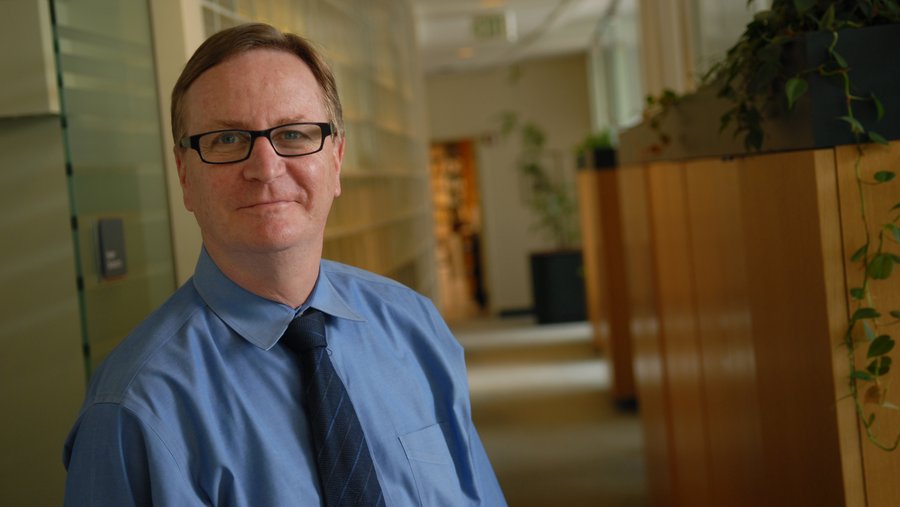UCSF is kicking off its largest-ever fundraising campaign, aiming to add another $2 billion to the science-focused university's efforts to advance biology and seed new discoveries.
Gifts received since 2013 have already carried the university more than halfway to its overall $5 billion philanthropic goal. Recent growth in big data, technology and collaboration around molecular biology makes this an ideal time for the institution to step up its fundraising, said Sam Hawgood, chancellor of University of California, San Francisco.
“That convergence is not happening anywhere faster or more effectively than in the Bay Area. The reason for that is we have phenomenal academic assets,” Hawgood told the Business Times.
UCSF has become a fundraising juggernaut, topping U.S. public universities overall for the last two fiscal years, and last year ranking fifth among all institutions. Last fiscal year, UCSF Foundation received more than $595 million in donations. Major gifts since 2013 come from 96,000 donors, including $185 million from Sandy and Joan Weill, $177 million from the Atlantic Philanthropies and $500 million from the Helen Diller Foundation.
Philanthropic dollars are critical for the public university, now more than ever. As federal and state funding have gotten more competitive, the scientific powerhouse has relied on major gifts to advance its research and health care. The funds also help it to continue attracting and retaining the talent responsible for those scientific advances.
Private money also offers benefits that government funding does not. While federal and state dollars are sometimes required to go to to specific programs and purposes, Hawgood said, philanthropic funds are flexible and allow the university to fund riskier ideas and science. These projects often do not attract National Institutes of Health funding, which seeks research with more results early on.
“(If scientists) are totally dependent on grant funding, then they're going to do safe science because that's the way to secure federal funds,” Hawgood said.
The campaign includes three grand challenges: Using biological discoveries to fight diseases before they start, translating discoveries into new therapies and partnering to improve health equity.
“None of those grand challenges will be successfully tackled if we don't have the very best talent from around the world working on them right here,” Hawgood said.
Many projects within these campaign challenges have received funding or pledges in the last few years. Some researchers are studying a drug that could reverse learning and memory impairments caused by traumatic brain injury. Others are engineering human cells from the immune system to kill cancer.
Joe DeRisi, biochemistry professor at UCSF and co-director of the Chan Zuckerberg Biohub, is working on creating a test to diagnose infections. The Biohub launched with a $600 million gift over 10 years from Facebook CEO Mark Zuckerberg and his wife Priscilla Chan.
DeRisi’s work is part of what attracted Julia Hartz, co-founder and CEO of Eventbrite, to commit to giving to UCSF's campaign. Hartz joined the UCSF Board of Overseers this year.
Years ago, Hartz was introduced to DeRisi by LinkedIn cofounder Reid Hoffman. After visiting DeRisi’s lab and seeing some of the genomics work, she became interested in learning about the medical science at UCSF.
Hartz said she has not decided the amount she will contribute to the campaign, but she is confident the campaign will reach its remaining $2 billion goal.
“I’m wondering if we should have shot for $10 billion. If you were looking at this as a private company to invest in, it’s like, ‘Can I write a blank check?’” Hartz said.
Some of the campaign funds will pay for operational costs and upcoming construction at the Parnassus campus. The university functions like a business, Hawgood said.
“We have to be as effective and as efficient in delivering services to our scientists, whether it's procurement or (human resources) or all of those issues to whittle down the overhead costs, so that we can put most of the money to work for what the donors want to do,” he said.
But federal funding still keeps the machine running. Last year, UCSF received a record $577 million in National Institutes of Health funding. It’s been one of the top recipients in the country for the last six years.
UCSF’s NIH funding for biomedical research has increased about 3 percent in the last few years, accounting for almost a quarter, or $1.5 billion, of its revenue.



